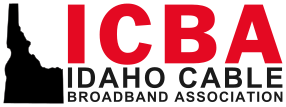Earlier this month, Ellis Scherer of the Information Technology & Innovation Foundation (ITIF) published a report making the following claims:
“In most cases, local governments have neither the competence nor the economies of scale to deliver broadband as well as private ISPs. So, favoring government-owned networks wastes societal resources, creates unfair competition, and is frequently unsustainable in the long run.“
Key Takeaways
- ITIF evaluated the finances, regulatory status, and economic sustainability of 20 government-owned broadband networks (GONs). The analysis found they are not competing on a level playing field with private Internet Service Providers (ISPs).
- Governments are generally less efficient at building and operating broadband networks because they lack the experience, skill, and economies of scale of private broadband providers.
- GONs often operate on an unlevel playing field, allowing them to compete unfairly with private ISPs.
- These advantages include capital grants not available to private ISPs, tax exemptions, and more favorable treatment by state and local regulatory authorities.
- When favoritism results in choosing duplicative or inefficient networks, the result is wasted U.S. societal resources.
- States should be careful about using Broadband Equity, Access, and Deployment (BEAD) funding to make GONs sustainable. U.S. broadband policy should advance broad national interests, not prop up subsidized GONs.
